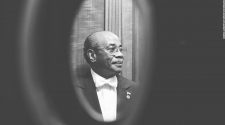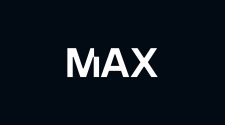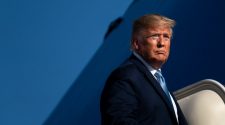HONG KONG — Political opposition has been quashed. Free speech has been stifled. The independent court system may be next.
But while Hong Kong’s top leaders take a tougher line on the city of more than seven million people, they are courting a crucial constituency: the rich. Top officials are preparing a new tax break and other sweeteners to portray Hong Kong as the premier place in Asia to make money, despite the Chinese Communist Party’s increasingly autocratic rule.
So far, the pitch is working. Cambridge Associates, a $30 billion investment fund, said in March it planned to open an office in the city. Investment managers have set up more than a hundred new companies in recent months. The Wall Street banks Goldman Sachs, Citigroup, Bank of America and Morgan Stanley are increasing their Hong Kong staffing.
“Hong Kong is second only to New York as the world’s billionaire city,” said Paul Chan, Hong Kong’s financial secretary, at an online gathering of finance executives this year.
Beijing can’t easily afford to scare away Hong Kong’s bankers and financiers. The former British colony remains a major gateway to the international financial system. Chinese companies need it for raising money from global investors; those companies and wealthy Chinese also rely on it to move their money overseas more readily.
So Beijing is striking a careful balance. It is stripping liberties from Hong Kong’s people to stop brazen challenges to Communist Party rule, like the sometimes violent antigovernment protests that erupted two years ago. At the same time, it is trying to charm the city’s financial class to keep it from moving to another business-friendly place like Singapore.
“It is a one-party state, but they are pragmatic and they don’t want to hurt business,” Fred Hu, a former chairman of Goldman’s Greater China business, said of Chinese officials.
For apolitical financial types, the changes will have little impact, said Mr. Hu, who is also the founder of the private equity firm Primavera Capital Group. “If you’re a banker or a trader, you may have political views, but you’re not a political activist,” he said.
To entice the wealthy, Hong Kong is completing work on a big tax break that will primarily benefit private equity, hedge funds and other investors. Officials are moving to make it easier to connect the city’s money managers with affluent mainlanders. Chinese companies are selling tens of billions of dollars’ worth of shares in Hong Kong, padding the profitability of Wall Street banks.
In its most recent move, Hong Kong last week proposed limiting how much companies must disclose about their ownership, which could shroud wealth in a city where the families of the Communist Party’s elite have long parked their money.
Not everybody has been won over. More than 1 percent of residents have left since Beijing imposed a broad national security law last summer. Tens of billions of dollars have flowed out of local Hong Kong bank accounts and into jurisdictions like Singapore.
Tensions run taut inside Hong Kong’s gleaming office towers. Even executives who are sympathetic to the government have declined to speak publicly for fear of getting caught in the political crossfire between Beijing and world capitals like Washington and London. Hong Kong’s tough rules on movement in the pandemic may also spark some expatriates to leave in the summer once school ends.
Today in Business
For now, however, financial firms are doubling down on Hong Kong. Neal Horwitz, an executive recruiter in Singapore, said finance was likely to remain in Hong Kong “until the ship goes down.”
In its biggest offering to the investor class, Hong Kong has proposed eliminating taxes on investment income called carried interest, which is typically earned by private equity investors and hedge funds. Officials had discussed the plan for years but didn’t introduce a bill until February, and it could pass in the coming months through the city’s Beijing-dominated legislature.
Similar tax breaks have sparked criticism elsewhere, including in the United States. But Hong Kong fears a financial exodus without such benefits, said Maurice Tse, a finance professor at Hong Kong University’s business school.
“To keep these people around we have to give a tax benefit,” he said.
Hong Kong has also proposed a program, Wealth Management Connect, that would give mainland residents in the southern region known as the Greater Bay Area the ability to invest in Hong Kong-based hedge funds and investment firms. Officials have boasted that it would give foreign firms access to 72 million people. Hong Kong and mainland Chinese officials signed an agreement in February to start a pilot program at an unspecified time.
Pandemic travel restrictions have slowed the proposal’s momentum, said King Au, the executive director of Hong Kong’s Financial Services Development Council, but it remains a top priority.
“I want to highlight how important the China market is to global investors,” Mr. Au said.
Mainland money has already helped Hong Kong look more attractive. Chinese firms largely fueled a record $52 billion haul for companies that sold new shares on the Hong Kong Stock Exchange last year, according to Dealogic, a data provider. New offerings this year have already raised $16 billion, including $5.4 billion for Kuaishou, which operates a Chinese video app. The record start has been helped in part by Chinese companies that have been pressured by Washington to avoid raising money in the United States.
Managing those offerings helped Goldman and Morgan Stanley climb to the top of the Asian industry rankings that measure the fees banks collect. A spokesman for Goldman said it planned to accelerate its hiring in Hong Kong by nearly one fifth in 2021 compared with last year. Morgan Stanley has doubled its pace of hiring this year, a spokesman said.
Thomas Gottstein, the chief executive of Credit Suisse, the Swiss bank, said in mid-March that it would triple its hires across China, and a spokeswoman said a Hong Kong staff increase was part of that. Bank of America is adding more people in Hong Kong, while Citi has said it will hire as many as 1,700 people in Hong Kong this year alone.
HSBC, the British bank, has faced pressure from Chinese state media to hew to the party line. Still, it is considering moving some of its top executives to Hong Kong, because it will be “important to be closer to growth opportunities,” Noel Quinn, HSBC’s chief executive, said in February.
Investment funds are flocking to Hong Kong, too, after officials in August lowered regulatory barriers to setting up legal structures similar to those used in low-tax, opaque jurisdictions like the Cayman Islands and Bermuda. Government data shows that 154 funds have been registered since then.
City officials last week also proposed to allow companies to conceal sensitive ownership data, in a move that could benefit companies and Communist Party officials alike. The measure could take effect as soon as May, and does not need to be approved by lawmakers. Critics say the move would make it nearly impossible to track the individuals behind companies that register in Hong Kong.
“The proposed law will facilitate corruption, fraud and other crimes,” said David M. Webb, a former banker and longtime investor in Hong Kong.
It could also help those in China’s top leadership, who are sensitive to any accusation that they have used their status for personal gain. The families of Xi Jinping, China’s top leader, and Li Zhanshu, the Communist Party’s No. 3 official, at one point owned Hong Kong property, according to a trail that can be traced partly through public records.
While officials have welcomed business, they have made clear to the financial and business worlds that they will brook no dissent. In March, Han Zheng, a Chinese vice premier, praised the stock market’s performance and the finance sector in a meeting with a political advisory group but made its limits clear.
“The signal to the business community is very simple,” said Michael Tien, a former Hong Kong lawmaker and businessman who attended the closed-door session. “Stay out of politics.”

















